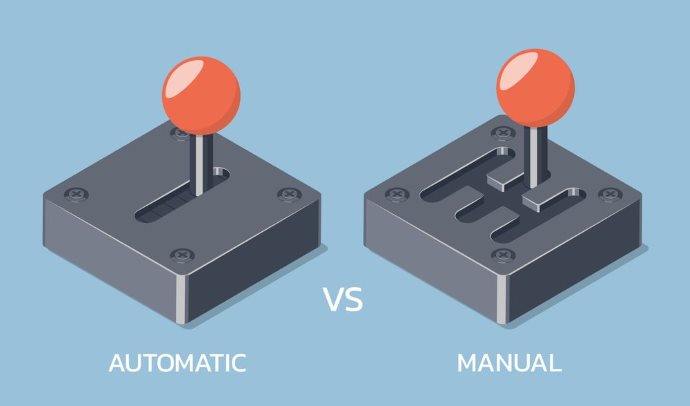Transmission is one of the most important components in every car.
It transfers power from the engine to the wheels, allowing the vehicle to move forward or backward.
When the transmission fails, it leads to various problems that negatively affect the vehicle’s performance.
In this article, I’ll talk about the signs of a bad transmission that you should know about.
There are 2 types of transmission.
- Manual transmission
- Automatic transmission
Manual Transmission
A manual transmission, also known as a standard transmission or stick shift, is a type of transmission used in vehicles that allow drivers to shift gears using a gear shifter and a clutch manually.
In a manual transmission, you must engage the clutch to disconnect the engine from the transmission and select a new gear using the gear shifter.
The clutch is then released, which allows the engine to engage the transmission and transfer power to the wheels.
Automatic Transmission
An automatic transmission system is used in vehicles that automatically changes gears without requiring driver input.
In an automatic transmission, the gears are changed by a hydraulic system that uses a fluid coupling and torque converter.
In an automatic transmission, the driver does not have to engage the clutch or change gears by hand.
Instead, the driver chooses “Drive Mode,” and the transmission chooses the right gear for that mode.
Bad Manual Transmission Symptoms | 5 Symptoms

A manual transmission is a mechanical system with various components that can fail over time, leading to various symptoms that indicate a problem with the transmission.
Here are 5 common symptoms of a bad manual transmission:
1. Difficulty in Shifting Gears
If it’s hard to change gears or you hear grinding or clunking when you do, that means the transmission isn’t engaging or disengaging properly.
It happens due to a worn-out clutch, faulty shift linkage, or other internal problem.
2. Slipping Clutch
An indicator of a slipping clutch is a spongy clutch pedal or the fact that the engine revs but the car doesn’t move forward.
This occurs due to a worn or damaged clutch plate or pressure plate.
3. Noisy Transmission
Unusual noises from the transmission indicate a problem with the gears, bearings, or transmission fluid.
Damaged bearings, worn gears, or low transmission fluid can cause it.
4. Burning Smell
If you smell burning, the transmission is overheating due to insufficient lubricant fluids.
The burning smell indicates there is not enough transmission fluid or that there is a leak in the transmission.
5. Gear Popping out
If the transmission pops out of gear or jumps into neutral unexpectedly, it indicates worn or damaged gears, shift forks, or other internal components.
Bad Automatic Transmission Symptoms | 7 Symptoms

Several symptoms indicate problems with an automatic transmission.
Here are 7 common symptoms of a bad automatic transmission:
1. Delayed Engagement
If you notice a delay when shifting from park to drive or reverse, there is a transmission problem.
The delay causes a rough or jerky shift when the transmission is finally engaged.
2. Slipping Gears
When the transmission slips out of gear while driving, it means that the clutch is worn or damaged.
Low transmission fluid, a filthy transmission filter, or a defective torque converter can also be the cause.
3. Rough Shifting
If you notice the gears hesitate to shift, it indicates that there is a problem in the transmission.
Damaged transmission parts and low or contaminated transmission fluid are the root causes of rough shifting.
4. Shuddering
If you feel a shuddering or shaking sensation when the transmission shifts gears, it indicates that the transmission is having issues.
Most of the time, low or dirty transmission fluid is responsible for shuddering.
5. Transmission Overheating
If the transmission fluid smells burned, it may indicate that the transmission is overheating.
Low or dirty fluid or a failing transmission cooler cause the transmission to overheat.
6. Clunky Noises
If the transmission is making strange noises, it means that the transmission mounts, bearings, or other internal parts are worn or damaged.
7. Warning Light
If the check engine light or transmission warning light comes on, it is a sign of a problem with the transmission.
Manual or Automatic Transmission, Which is Better?
There is no ultimate answer to this question.
The choice between a manual and an automatic transmission depends on your personal needs and driving preferences.
Both types of transmission have their advantages and disadvantages.
But you can decide which one suits you after considering these 4 factors.
1. Control
A manual transmission provides better control and engagement than an automatic transmission.
If you are a driving enthusiast who wants to take full control and be engaged in driving, then the manual transmission can be a better choice.
2. Convenience
A car with an automatic transmission is easier to drive than one with a manual transmission, especially in traffic that stops and starts or on long trips.
With an automatic transmission, the driver doesn’t have to do as much work or pay as much attention because the transmission chooses the right gear for them.
3. Fuel Efficiency
In the past, vehicles with manual transmissions were more fuel-efficient than vehicles with automatic transmissions.
But modern automatic transmission vehicles have more gear options, which makes them more fuel efficient than vehicles with manual transmissions.
So, if you want better fuel efficiency, go for an automatic transmission with more gear options.
4. Repairing Cost
An automatic transmission is more expensive than a manual transmission.
So, if the transmission becomes bad, it will cost more money to repair.
After comparing all these factors, you must decide which type of transmission suits you better.
Final Thoughts
If you are experiencing any of these symptoms, you need to take your vehicle to a professional mechanic immediately.
Ignoring transmission problems can further damage your vehicle and cause expensive repairs.
Proper maintenance and care can keep your transmission running smoothly for years.
Read more:


